What is Mindfulness?
[Related Questions: What does mindfulness mean? What is the definition of Mindfulness? What exactly is mindfulness? Where did Mindfulness come from. What is the purpose of Mindfulness?]
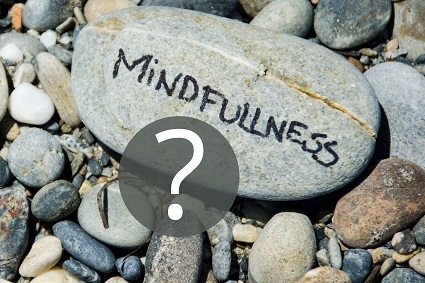 Mindfulness is a state of focused awareness of the present moment without distractions. The practice of Mindfulness involves deliberately directing your full attention to the here and now while clearing your mind of any thoughts, feelings, judgments, or considerations regarding the past, future, or other events.
Mindfulness is a state of focused awareness of the present moment without distractions. The practice of Mindfulness involves deliberately directing your full attention to the here and now while clearing your mind of any thoughts, feelings, judgments, or considerations regarding the past, future, or other events.
Developed as part of Eastern Buddhist philosophy, the devout practice of Mindfulness was designed to enhance spiritual awareness and connect with transcendental, universal consciousness. In modern Western culture, Mindfulness is both as a spiritual practice and as a therapeutic technique to create a sense of well-being, to reduce anxiety or stress, and to improve mental and physical health. Mindfulness as a technique teaches you to eliminate your “monkey mind” of random or negative thoughts, and to be fully present in the current moment, attending to your actions and surroundings with acceptance.
What is the difference between mindfulness and meditation?
[Related Questions: What Is Mindfulness Meditation? How can I practice mindfulness without meditation? What is the difference between Mindfulness meditation and Transcendental Meditation? How do I practice mindfulness and meditation? How do yoga and mindfulness work together?]
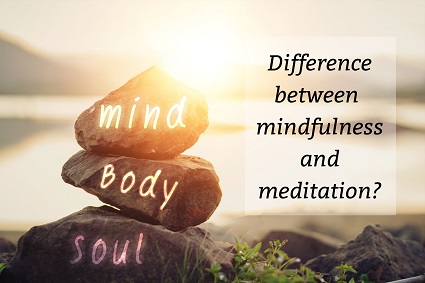 Mindfulness is one of the Buddhist Meditation practices developed to help their monks create and refine their transcendent connection to the universal consciousness. Other Meditation practices include physical postures, Yoga poses, breathing techniques, mantras, and guided visualization. You can practice Mindfulness independently or with these other meditation practices to increase one’s ability to focus attention and enhance spiritual presence, (See the Find Magic People Topic Page on Meditation.)
Mindfulness is one of the Buddhist Meditation practices developed to help their monks create and refine their transcendent connection to the universal consciousness. Other Meditation practices include physical postures, Yoga poses, breathing techniques, mantras, and guided visualization. You can practice Mindfulness independently or with these other meditation practices to increase one’s ability to focus attention and enhance spiritual presence, (See the Find Magic People Topic Page on Meditation.)
What are the basics of Mindfulness Practice?
[Related Questions: How do I practice Mindfulness? What are Mindful practices for every day? What are the best mindfulness exercises? What are some examples of mindfulness exercises? What are a few tips to Practice Mindfulness in Daily Life? When and how often should I practice mindfulness exercises? What are some Mindfulness techniques?]
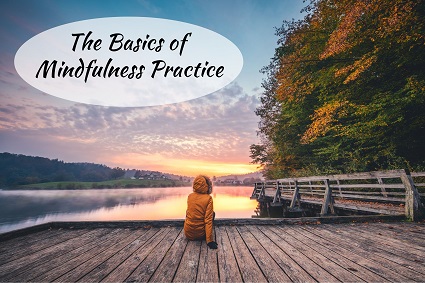 Mindful exercises are simple, and you can do them anywhere without special preparation. Practice them independently from meditation at any time and during any activity by focusing your awareness on the present moment and accepting what you observe without judgment.
Mindful exercises are simple, and you can do them anywhere without special preparation. Practice them independently from meditation at any time and during any activity by focusing your awareness on the present moment and accepting what you observe without judgment.
You can spiritually “Be Here Now” while doing any ordinary activity such as mindful eating, mindful walking, mindful washing, and mindful waiting.
Start a regular mindfulness practice by setting aside 15 or 30 minutes each day for a dedicated mindful exercise. Sit in a relaxed posture, breathe slowly and deliberately, and focus your attention on the present moment. Be aware of any thoughts, emotions, and physical sensations as they appear in your consciousness and dismiss them without any consideration that would fix them in your mind. If a perception dwells, just be gently aware and dismiss it without further evaluation. Mindful awareness is uncritical, accepting, patient, open minded, trusting, thankful, generous, willing to let be, and willing to let go.
What are the benefits of Mindfulness?
[Related Questions: Why practice Mindfulness? How important is it to practice mindfulness? Does Mindfulness reduce stress and clear the mind? How can Mindfulness help calm my anxiety? How is mindfulness used in therapy? What kind of studies have been done on Mindfulness? Are there limitations or cautions about Mindfulness?]
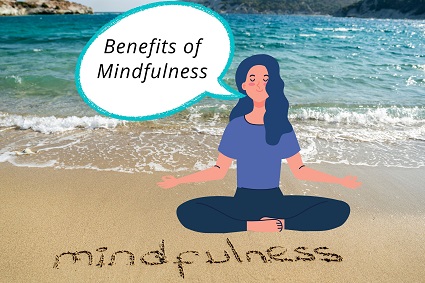 Practicing mindfulness gives you greater control of your thoughts and feelings, enhances your spiritual consciousness, and brings a sense of well-being. A simple sitting or body scan meditation can be remarkably effective to reduce anxiety, stress, and pain. Mindfulness-based therapies have proven to be effective in restoring a tranquil mind and in improving relaxation and sleep.
Practicing mindfulness gives you greater control of your thoughts and feelings, enhances your spiritual consciousness, and brings a sense of well-being. A simple sitting or body scan meditation can be remarkably effective to reduce anxiety, stress, and pain. Mindfulness-based therapies have proven to be effective in restoring a tranquil mind and in improving relaxation and sleep.
Mindfulness, as a form of Meditation, has scientifically demonstrated various health benefits according to the National Center for Complementary and Integrative Health (NCCIH), one of the US government National Institutes of Health:
“Many studies have been conducted to look at how meditation may be helpful for a variety of conditions, such as high blood pressure, certain psychological disorders, and pain. Some research suggests that meditation may physically change the brain and body and could potentially help to improve many health problems and promote healthy behaviors.
Some research suggests that practicing meditation may reduce blood pressure, symptoms of irritable bowel syndrome, anxiety and depression, and insomnia.
Meditation is considered to be safe for healthy people. However, people with physical limitations may not be able to participate in certain meditative practices involving movement. Do not use meditation to replace conventional care or as a reason to postpone seeing a health care provider about a medical problem."
Practicing Mindfulness (or other forms of Meditation) has practical benefits such as:
- Viewing stressful situations with a calm perspective
- Experiencing spiritual awareness apart from transitory thoughts
- Reducing fear, guilt, anxiety, and pain
- Increasing creativity and social receptivity
- Improving sleep quality
Practicing Mindfulness (or other forms of Meditation) in addition to traditional medical treatment can improve medical conditions associated with stress, such as: asthma. cancer, chronic pain, depression, heart disease, high blood pressure, irritable bowel syndrome, insomnia, and tension headaches.
How do I learn to practice Mindfulness?
[Related Questions: How can Mindfulness be attained? How do I get started with Mindfulness? How do I sit for Mindfulness Practice? How do I find a Mindfulness teacher? How Do I Cultivate Mindfulness?]
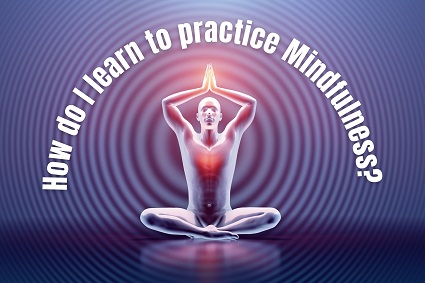 You can practice Mindful exercises yourself from the guidance on this page. Personal instruction from a practitioner will enable you to learn proper techniques that are suited to your immediate needs and circumstances. You may contact any practitioners on the Find Magic People site for consultation and information.
You can practice Mindful exercises yourself from the guidance on this page. Personal instruction from a practitioner will enable you to learn proper techniques that are suited to your immediate needs and circumstances. You may contact any practitioners on the Find Magic People site for consultation and information.